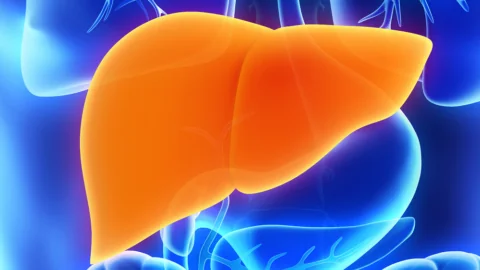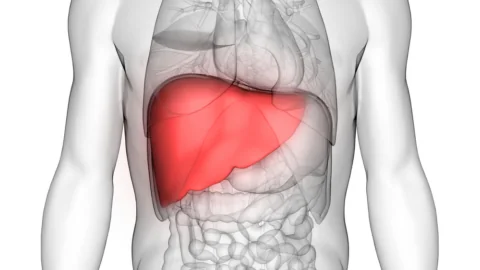June 20, 2024
Researchers have discovered one of the reasons why fatty liver disease, even without alcohol consumption, increases with aging. Our nonprofit mission is to increase healthy human lifespan, for everyone!To do this, we need your support. Your charitable contribution tranforms into rejuvenation research, news, shows, and more. Will you help?♥ Yes, I'll Donate The earliest stage...
June 13, 2024
Researchers publishing in Cell Stem Cell have demonstrated that genetically diseased liver cells can be taken from human beings, altered in the laboratory, and used to regrow the livers of model mice. Recreating an entire organ has its own difficulties These researchers begin their paper by discussing existing cellular therapies for multiple tissues, such as...
March 18, 2024
In Cell, a team of researchers, including the founders of the biotech company HepaRegeniX, has published a paper on HRX215, a molecule that encourages liver regeneration. When the liver doesn't regenerate The researchers note that the liver has a "nearly unlimited regenerative potential" under healthy circumstances. However, when its microenvironment changes due to damage, this...
June 01, 2023
Research published in Aging has shed new light on the relationship between certain liver diseases and cellular senescence. Clogged bile ducts and senescence Why we Age: Cellular SenescenceAs your body ages, more of your cells become senescent. Senescent cells do not divide or support the tissues of which they are part; instead, they emit potentially...
April 19, 2023
Chinese scientists have found that the liver removes amyloid-β from circulation in mice, which also decreases its levels in the brain. The age-related impairment of this process might offer a new clue for fighting Alzheimer’s disease [1]. The janitor of the body Despite the flop-laden history of the amyloid-β-centered approach to Alzheimer’s, there is still...
July 25, 2022
A study published in Oxidative Medicine and Cellular Longevity has shown how blueberry extract moderately improves several age-related biomarkers in the livers of aging male rats. Rich in polyphenols In their introduction, the researchers describe polyphenols, a broad category of plant compounds that includes flavonoids. Specifically, blueberries are rich in anthocyanins, a group of polyphenols...






